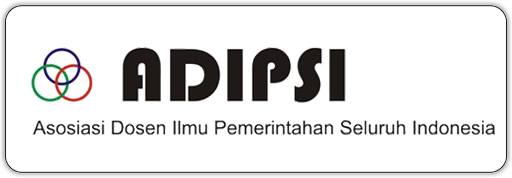Smart City Policy Innovation in the City of Jambi
DOI:
https://doi.org/10.31629/kemudi.v7i02.4735Keywords:
Innovation, Kampung Bantar, Smart City, Participation and WelfareAbstract
This paper intends to describe the policy innovations of the Jambi’s government in realizing a smart city with a focus on the use of RT-based urban villages (Kampung Bantar) and its meaning for the welfare of urban residents. To explain this case, researcher used qualitative research methods. This method was used because this research is related to the local government's in-depth understanding of smart cities. This research requires secondary data in the form of official government documents, for example several regional regulations, mayoral decrees and regulations, as well as other documents regarding city development policies towards smart cities. Primary data is also used in the form of interview results with informants obtained through in-depth interviews. This paper will answer common questions: how is smart city in Jambi city implemented? Specifically, it will answer: what is the role of the village in realizing a smart city and giving meaning to the welfare of urban residents. The findings show that there is a strong relationship between leadership innovation and social capital in the utilization of settlements to realize Jambi as a smart city
Downloads
References
Badru, S. Q., & Novianty, D. (2017). Kepemimpinan Perilaku Organisasi. Ideas Publishing.
Bisnis Tempo. (2017). Bandung Terapkan Smart City Membangun Kota Lebih Efisien.https://www.google.com/amp/s/bisnis.tempo.co/amp/1022314/bandung-terapkan-smart-city-membangun-kota-lebih-efisien
Cohen, B. (2014). The Smartest Cities In The World 2015: Methodology. https://www.fastcompany.com/3038818/the-smartestcities-in-the-world-2015-methodology
Field, J. (2010). Modal Sosial. Kreasi Wacana.
Giffinger, R., Fertner, C., Kramar, H., & Meijers, E. (2007). City Ranking of European Medium-Sized Cities. 1–12.
Habermas, J. (1989). The Structural Transformation of The Public Sphere: An Inquiry Into a Category of Bourgeois Society. The MIT Press.
Harriss, John, et.al. 2005. "Introduction: The New Local Politics of Democratisation" dalam John Harriss, Kristian Stoke, Olle Tornquist (eds). Politicsing Democracy: The New Local Politics of Democratisation. New York: Palgrave Macmillan.
Harrison, C., Eckman, B., Hamilton, R., Hartswick, P., Kalagnanam, J., Paraszczak, J., & Williams, P. (2010). Foundations for Smarter Cities. IBM Journal of Research and Development, 54(4).
Indranata, I. (2008). Pendekatan Kualitatif Untuk Pengendalian Kualitas. Universitas Indonesia (UI-Press).
International IDEA. (2002). Demokrasi Di Tingkat Lokal. AMEEPRO.
Kickert, W. J. M., Klijn, E.-H., & Koppenjan, J. F. M. (1997). Managing Complex Networks: Strategies for the Public Sector. SAGE Publications Ltd.
Koran Sindo. (2018). Usung Program Bangkit Berdaya dan Kampung Bantar. https://www.google.com/amp/s/daerah.sindonews.com/beritaamp/1334200/174/usung-program-bangkit-berdaya-dan-kampung-bantar
Kurniadi, B. D., Hanif, H., Erawan, I. K. P., Ala, L. N. B., Ikhsanto, M. A., Kurniawan, N. I., Azizah, N., & Pamungkas, S. (2009). Menuju Bekerjanya Tata Pemerintahan Lokal Yang Baik: Partisipasi, Transparansi, dan Akuntabilitas. Monograph on Politics & Government, 3.
Makhmud, D. F., Nurhasanah, F., Utami, I. U., Khansha, S., Radnawati, D., & Syahadat, R. M. (2017). Mewujudkan Kampung Bandan sebagai Kampung Kota Berkelanjutan Menggunakan Pendekatan. Jurnal Arsitektur, Bangunan, & Lingkungan, 6, 91–100.
Marisa, H., & Andree. (2019). Analisa Implementasi Smart City Madani Pemerintah Kota Pekanbaru Dalam Upaya Sinergitas Program Asean Smart Cities Network ( ASCN ) 2030. Asosiasi Ilmu Hubungan Internasional Indonesia (AIHII), 10, 22–25.
Mayusa, A. (2018). Partisipasi Masyarakat Dalam Pembangunan Fisik Di Desa Tangkura Kecamatan Poso Pesisir Selatan Kabupaten Poso. Katalogis, 6, 74–84.
Paskarina, C., Asiah, M., & Madung, O. G. (2015). Berebut Kontrol Atas Kesejahteraan: Kasus-Kasus Politisasi Demokrasi Di Tingkat Lokal. PolGov & PCD Press.
Rosyadi, S. (2010). Paradigma Baru Manajemen Pembangunan. Gava Media.
Sen, A. (1999). Development as Freedom. Random House, Inc.
Setijaningrum, E. (2017). Inovasi Kebijakan Pelayanan Publik: Best Practice di Indonesia. Pusat Penerbitan dan Percetakan (AUP).
Sjihabuddin, A. (2013). 3 Indikator Prinsip Inklusivitas dalam Pelayanan. http://www.setjen.kemenkeu.go.id
Supangkat, S. H., Arman, A., & Nugarah, I. (2015). Pengenalan dan Pengembangan Smart City. Bandung: E-Indonesia Initiatives Institut Teknologi Bandung.
Tim PSPPR UGM. (2016). Road Map Kota Yogyakarta Menuju Smart City (Issue 1).













